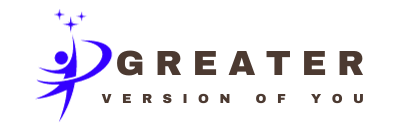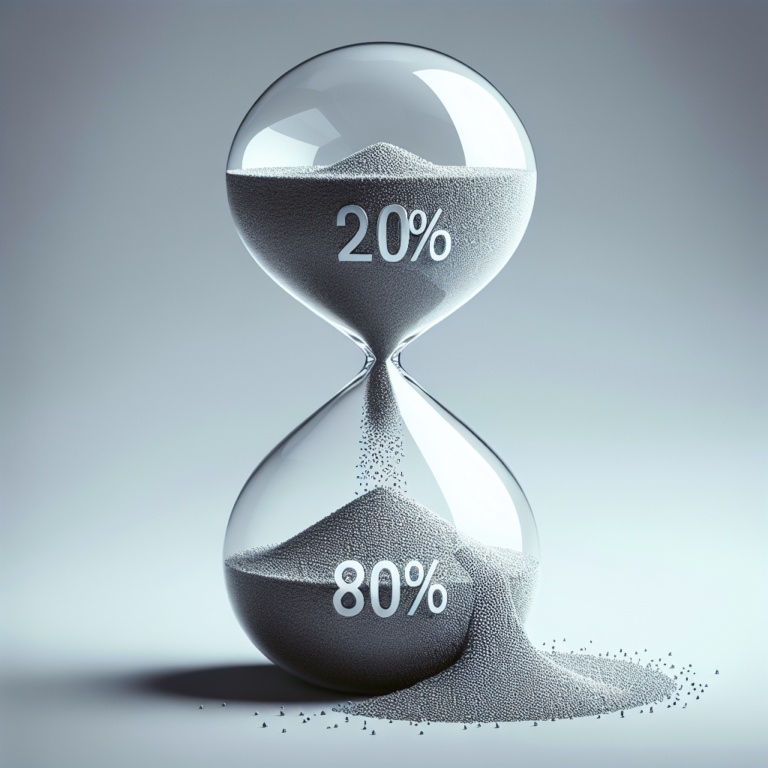Are you constantly feeling overwhelmed at work, struggling to manage your tasks efficiently? Look no further! In this article, we will provide you with simple yet effective strategies to boost your work efficiency. From prioritizing tasks to minimizing distractions, you’ll discover practical tips that will help you maximize productivity and achieve your goals in no time. Say goodbye to stress and hello to a more organized and productive workday.
Setting Clear Goals
Setting clear goals is essential for improving work efficiency. By defining objectives, breaking down tasks, and setting deadlines, you can create a roadmap to success.
Defining Objectives
Start by clearly defining your objectives. What exactly do you want to achieve? Be specific and make sure your objectives are measurable. For example, instead of setting a vague goal like “increase sales,” set a specific objective like “increase monthly sales by 10%.” This will give you a clear target to work towards and help you stay focused and motivated.
Breaking Down Tasks
Once you have defined your objectives, break them down into smaller, manageable tasks. This will make them less overwhelming and easier to tackle. Create a list of all the tasks that need to be completed to achieve your objectives, and prioritize them based on their importance and urgency.
Setting Deadlines
To ensure that tasks are completed in a timely manner, it is important to set deadlines. Set realistic deadlines for each task, taking into account any dependencies or constraints. Deadlines provide a sense of urgency and help you stay on track. Make sure to monitor your progress regularly and adjust deadlines if necessary.
Managing Time Effectively
Managing time effectively is crucial for maximizing work efficiency. By creating a to-do list, prioritizing tasks, and eliminating time wasters, you can make the most of your time.
Creating a To-Do List
A to-do list is a simple yet powerful tool for managing your tasks. Start each day by creating a to-do list that outlines all the tasks you need to accomplish. Prioritize your tasks based on their urgency and importance. Having a to-do list helps you stay organized, stay focused, and ensures that important tasks don’t fall through the cracks.
Prioritizing Tasks
Not all tasks are created equal. Some tasks are more important or time-sensitive than others. Prioritize your tasks based on their impact and urgency. Focus on high-priority tasks that align with your objectives first and allocate your time accordingly. By prioritizing tasks, you can ensure that your time and energy are focused on the activities that will have the greatest impact.
Eliminating Time Wasters
Identify and eliminate time wasters that can derail your productivity. Common time wasters include excessive social media use, unnecessary meetings, and excessive multitasking. Set boundaries and limit distractions to help you stay focused on your work. Consider using productivity tools or apps to track and manage your time more effectively.

Maintaining a Healthy Work-Life Balance
Maintaining a healthy work-life balance is key to improving work efficiency and overall well-being. By setting boundaries, taking regular breaks, and engaging in stress-relieving activities, you can ensure a healthy balance between work and personal life.
Setting Boundaries
It is important to set boundaries between work and personal life. Clearly define your working hours and stick to them. Avoid bringing work-related tasks and responsibilities into your personal time. Communicate your boundaries to your colleagues and clients to ensure they respect your personal time.
Taking Regular Breaks
Taking regular breaks throughout the day is essential for maintaining productivity and preventing burnout. Breaks help to recharge your energy levels and improve focus. Try incorporating short breaks into your work routine, such as taking a quick walk or doing some stretching exercises. Use these breaks as an opportunity to disconnect from work and relax.
Engaging in Stress-Relieving Activities
Stress can have a negative impact on your work efficiency. Engaging in stress-relieving activities can help to reduce stress levels and improve overall well-being. Find activities that help you relax and unwind, such as practicing mindfulness, exercising, or hobbies. Make time for these activities on a regular basis to ensure a healthy work-life balance.
Improving Communication
Effective communication is vital for enhancing work efficiency. By practicing active listening, improving written communication skills, and enhancing interpersonal skills, you can improve collaboration and productivity.
Active Listening
Active listening involves giving your full attention to the person speaking and actively engaging with their message. This means avoiding distractions and truly focusing on what the other person is saying. By practicing active listening, you can improve understanding, resolve conflicts more effectively, and build stronger relationships with your colleagues.
Effective Written Communication
Written communication is a key aspect of work efficiency, especially in today’s digital age. To improve written communication, be clear and concise in your messages, use proper grammar and punctuation, and proofread before sending. Consider utilizing tools such as grammar checkers or style guides to enhance the quality of your written communication.
Enhancing Interpersonal Skills
Interpersonal skills play a crucial role in effective communication and collaboration. Develop strong interpersonal skills by practicing empathy, active engagement, and conflict resolution. Building positive relationships with your colleagues and superiors fosters a productive work environment and enhances overall work efficiency.

Utilizing Technology and Tools
In today’s digital world, utilizing technology and tools can greatly enhance work efficiency. By streamlining workflows, automating repetitive tasks, and using project management software, you can save time and improve productivity.
Streamlining Workflows
Evaluate your workflows and identify areas that can be streamlined. Look for opportunities to reduce manual tasks, minimize handoffs between team members, and leverage technology to optimize processes. Streamlining workflows can save time, improve accuracy, and reduce the risk of errors.
Automating Repetitive Tasks
Repetitive tasks such as data entry, report generation, or email responses can be time-consuming and prone to errors. Identify tasks that can be automated and utilize tools or software to automate them. This frees up time for more value-added activities and reduces the risk of human error.
Using Project Management Software
Project management software can be a powerful tool for improving work efficiency. It helps in organizing tasks, tracking progress, and collaborating with team members. Utilize project management software to assign tasks, set deadlines, and monitor project timelines. This improves communication, facilitates teamwork, and ensures that projects are completed on time and within budget.
Optimizing Workspace
A well-organized and clutter-free workspace can greatly contribute to work efficiency. By organizing physical files, creating a clean and tidy environment, and reducing clutter, you can create a conducive workspace that promotes productivity.
Organizing Physical Files
Maintain a system for organizing physical files and documents. Use folders or binders to categorize and label files for easy retrieval. Regularly declutter and remove unnecessary documents to keep your workspace organized and efficient. Implementing a digital filing system can also help in reducing the reliance on physical files.
Creating a Clean and Tidy Environment
A clean and tidy workspace can have a positive impact on your mindset and productivity. Take the time to regularly clean and declutter your workspace. Clear off your desk, organize supplies, and create a pleasant work environment. A clean and tidy workspace promotes focus, reduces distractions, and helps you stay more engaged with your work.
Reducing Clutter
Clutter can be a significant barrier to work efficiency. It can cause distractions, hinder productivity, and create unnecessary stress. Take steps to reduce clutter in your workspace by removing unnecessary items, storing supplies in designated areas, and implementing effective storage solutions. A clutter-free workspace allows for better focus and concentration, leading to improved work efficiency.

Implementing Efficient Processes
Implementing efficient processes is a key factor in improving work efficiency. By identifying bottlenecks, streamlining workflows, and documenting standard operating procedures, you can eliminate barriers and optimize productivity.
Identifying Bottlenecks
Bottlenecks are points in a process where the flow of work is hindered or slowed down. Identify these bottlenecks and take steps to address them. This may involve reallocating resources, redesigning processes, or implementing new technologies. By removing bottlenecks, you can improve workflow efficiency and reduce delays in project completion.
Streamlining Workflows
Streamlining workflows involves eliminating unnecessary steps, automating tasks, and optimizing the sequence of activities. Analyze your existing workflows and look for opportunities to simplify or eliminate redundant steps. Streamlining workflows improves efficiency, reduces errors, and saves time.
Documenting Standard Operating Procedures
Documenting standard operating procedures (SOPs) is essential for ensuring consistent and efficient work practices. SOPs provide a clear set of instructions that enable employees to perform tasks consistently and accurately. Develop SOPs for repetitive or critical tasks, and regularly update them to reflect any changes or improvements in processes. Properly documented SOPs improve efficiency, minimize errors, and facilitate smooth workflow transitions.
Continuous Learning and Development
Continuously learning and developing your skills and knowledge is crucial for improving work efficiency. By staying updated with industry trends, attending workshops and training sessions, and seeking feedback for improvement, you can enhance your capabilities and stay ahead.
Staying Updated with Industry Trends
In today’s rapidly evolving work landscape, it is essential to stay updated with industry trends. Regularly seek out relevant news, publications, and resources to stay informed about the latest developments in your field. This knowledge empowers you to adapt to changing circumstances, identify new opportunities, and make informed decisions to improve work efficiency.
Attending Workshops and Training Sessions
Attending workshops and training sessions provides valuable opportunities for learning and skill development. Look for relevant workshops or training programs that can enhance your professional capabilities. These sessions can provide insights, tools, and techniques to improve work efficiency and productivity. Take advantage of these learning opportunities to stay ahead in your field.
Seeking Feedback and Improvement
Feedback plays a crucial role in identifying areas of improvement and enhancing work efficiency. Seek feedback from your colleagues, superiors, and clients on your performance. Be open to constructive criticism and actively work on improving identified areas. Continuous feedback and improvement help you refine your skills, overcome challenges, and ultimately become more efficient in your work.

Building a Supportive Work Environment
A supportive work environment can have a significant impact on work efficiency. By encouraging collaboration, recognizing and rewarding achievements, and fostering a positive company culture, you can create a workplace that promotes productivity and success.
Encouraging Collaboration
Encouraging collaboration among team members is essential for enhancing work efficiency. Foster a culture of teamwork by promoting open communication, providing opportunities for cross-functional collaboration, and recognizing the value of diverse perspectives. Effective collaboration leads to improved problem-solving, innovation, and greater overall efficiency.
Recognizing and Rewarding Achievements
Recognizing and rewarding achievements is a powerful motivator that can enhance work efficiency. Acknowledge and appreciate the efforts and accomplishments of your team members. This can be through verbal recognition, written appreciation, or small rewards such as gift cards or team outings. Recognizing achievements fosters a sense of pride, boosts morale, and motivates individuals to continue performing at their best.
Fostering a Positive Company Culture
A positive company culture is instrumental in creating a supportive work environment. Foster a culture that values open communication, teamwork, and work-life balance. Encourage a positive mindset, celebrate successes, and promote a healthy and inclusive workplace culture. A positive company culture cultivates engaged and motivated employees, resulting in improved work efficiency and overall satisfaction.
Prioritizing Health and Wellness
Prioritizing health and wellness is crucial for maintaining work efficiency and overall well-being. By managing stress, promoting physical activity, and adopting healthy eating habits, you can optimize your productivity and success.
Managing Stress
Prolonged stress can negatively impact work efficiency. Develop effective stress management techniques such as practicing mindfulness, engaging in relaxation exercises, or seeking support from a therapist. Prioritize self-care activities to alleviate stress and maintain a healthy work-life balance.
Promoting Physical Activity
Regular physical activity has numerous benefits for work efficiency. Engage in regular exercise, whether it’s going for a walk, attending a fitness class, or participating in team sports. Physical activity boosts energy levels, improves mental clarity, and reduces stress, leading to enhanced work efficiency.
Adopting Healthy Eating Habits
Proper nutrition plays a vital role in maintaining optimal work efficiency. Adopt healthy eating habits by incorporating nutritious foods into your diet. Stay hydrated, choose balanced meals, and avoid excessive consumption of sugary or processed foods. Fueling your body with the right nutrients ensures sustained energy levels and promotes overall wellness.
In conclusion, improving work efficiency requires a holistic approach that encompasses setting clear goals, managing time effectively, maintaining a healthy work-life balance, improving communication, utilizing technology and tools, optimizing the workspace, implementing efficient processes, continuous learning, building a supportive work environment, and prioritizing health and wellness. By implementing the strategies outlined in this article, you can enhance your work efficiency, productivity, and overall satisfaction in the workplace.






